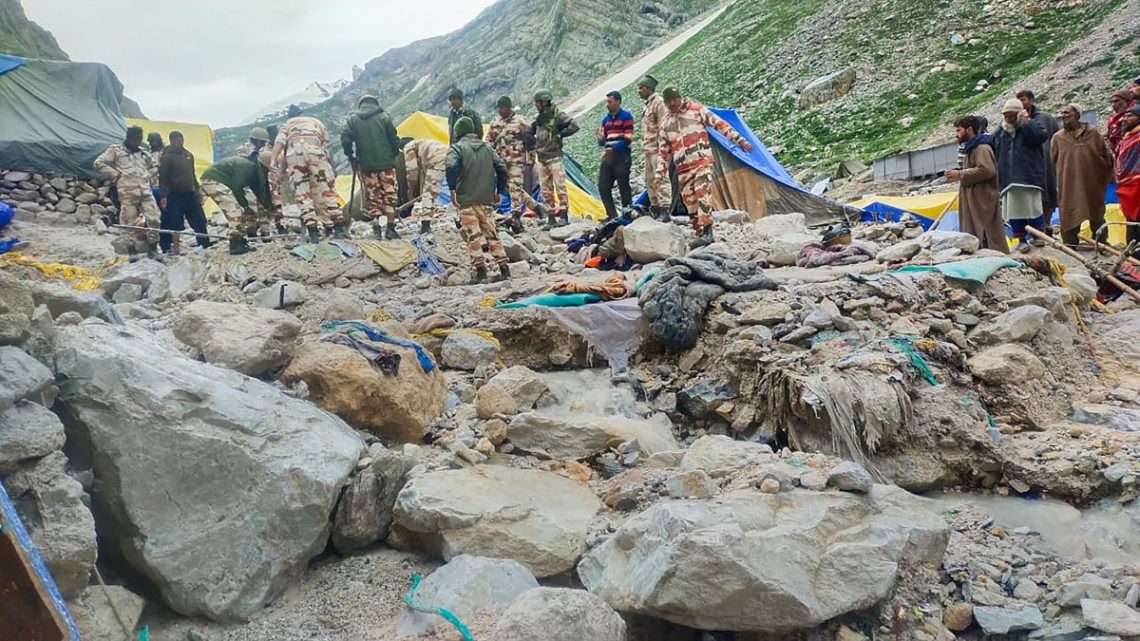
Environmentalists Warn of Ecological Disaster as Amarnath Yatra Proceeds in IIOJK
June 5, 2024In a move that experts deem a significant environmental threat, the Indian government has decided to proceed with the Amarnath Yatra in the Indian-illegally occupied region of Jammu and Kashmir. This annual pilgrimage, which draws hundreds of thousands of Hindu devotees, poses a severe risk to the delicate ecosystem of the region.
Environmentalists have raised alarms about the potentially catastrophic effects of the pilgrimage. The influx of such a vast number of pilgrims is expected to accelerate the melting of glaciers, cause floods, and lead to widespread pollution in the mountainous terrain. The Indian government’s militarized approach to facilitating the yatra has further intensified these concerns, with experts urging the authorities to curtail both the duration and the number of participants to preserve the region’s ecology.
“The Amarnath Yatra is an environmental disaster waiting to happen,” warned a prominent environmentalist, who preferred to remain anonymous. The environmental impact of such a large-scale human activity in a fragile ecosystem is profound, yet the Indian government has been criticized for ignoring these risks. The pilgrimage, while spiritually significant for many, brings with it a host of environmental challenges that have not been adequately addressed.
The yatra involves setting up temporary infrastructure to accommodate the pilgrims, which disrupts the natural landscape. Moreover, the waste generated by the influx of visitors poses a severe threat to local wildlife and water sources. The stress on the environment is compounded by the militarized presence, which includes extensive use of vehicles and machinery that contribute to pollution and habitat disruption.
As the world marks World Environment Day, the Indian government’s disregard for the environmental concerns in Jammu and Kashmir serves as a stark reminder of the urgent need for sustainable practices. Environmental groups are calling for immediate measures to mitigate the damage and ensure the long-term health of the region’s ecosystem.
“The Indian government must be held accountable for their actions,” asserted another leading environmental activist. These activists demand an immediate review of the yatra’s environmental impact, alongside concrete steps to protect the fragile environment of Jammu and Kashmir. They emphasize the necessity of implementing sustainable tourism practices, which could include limiting the number of pilgrims and the duration of the yatra.
The situation in Jammu and Kashmir highlights a broader issue of balancing religious and cultural practices with environmental sustainability. While the Amarnath Yatra holds deep spiritual significance, it is imperative that the pilgrimage is managed in a way that does not compromise the ecological integrity of the region.
In conclusion, as the Amarnath Yatra proceeds, the urgent calls from environmentalists underscore a pressing need for the Indian government to address the environmental threats posed by the pilgrimage. Protecting the fragile ecosystem of Jammu and Kashmir requires immediate and sustained efforts to ensure that the spiritual journey does not become an ecological catastrophe.

